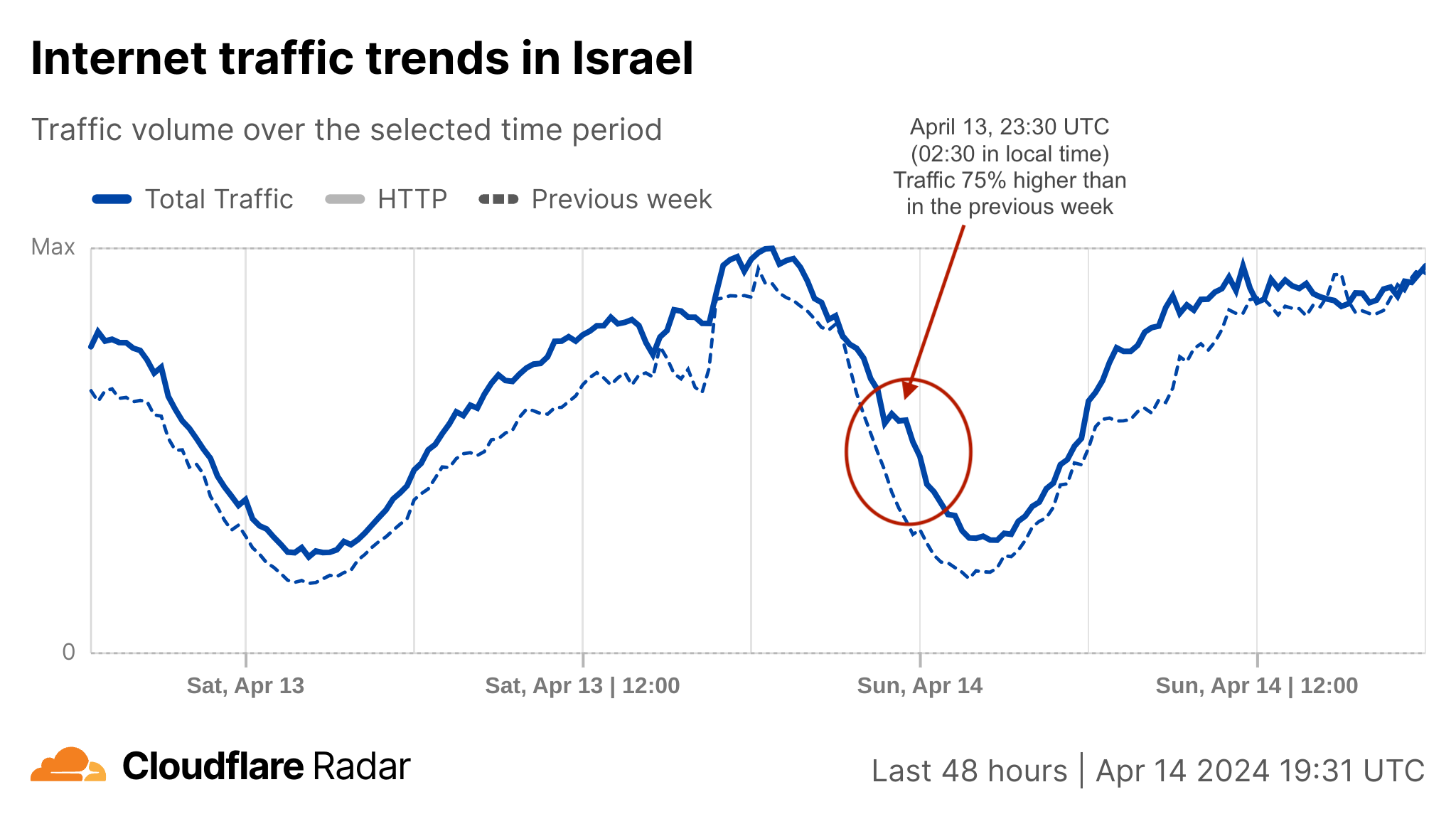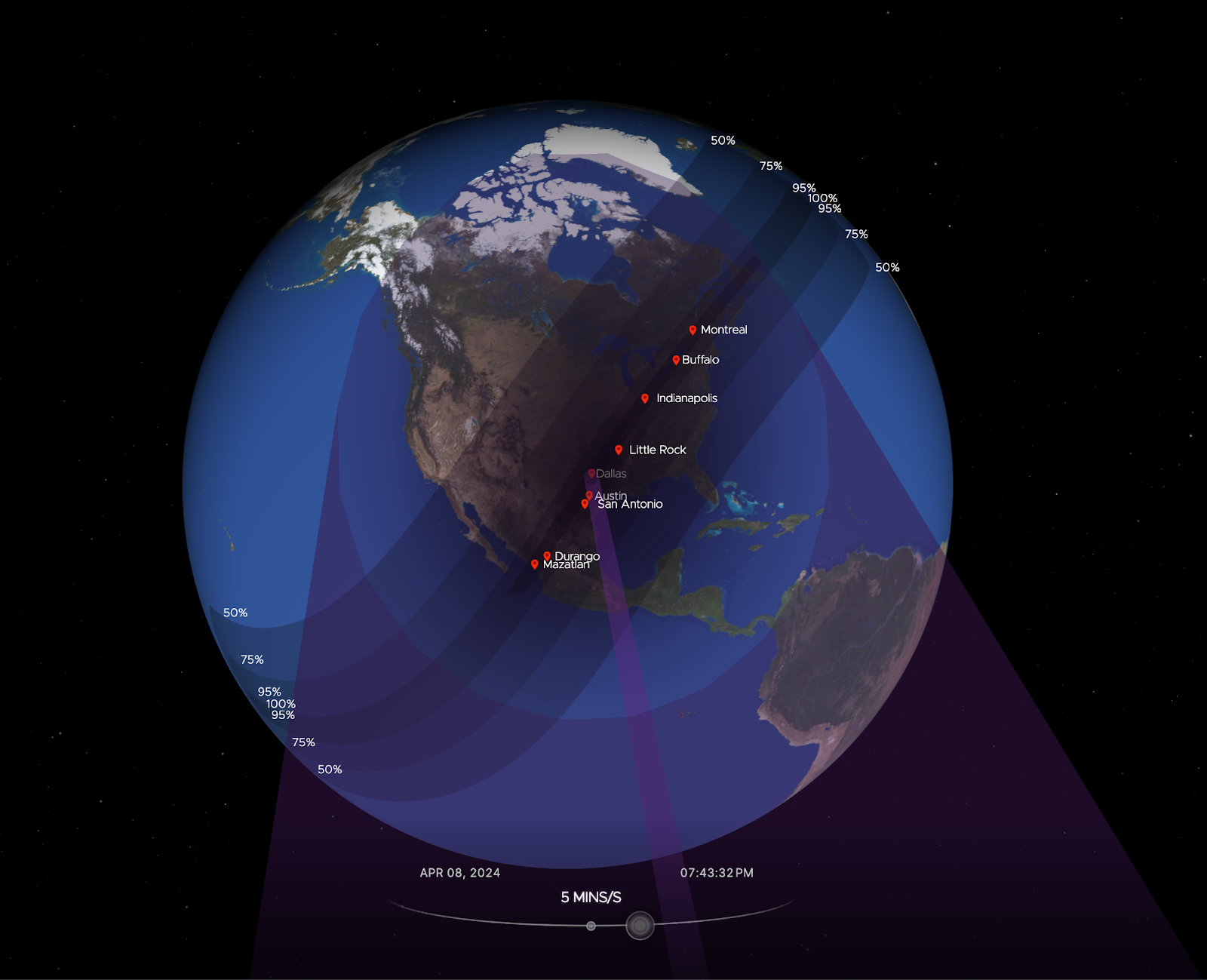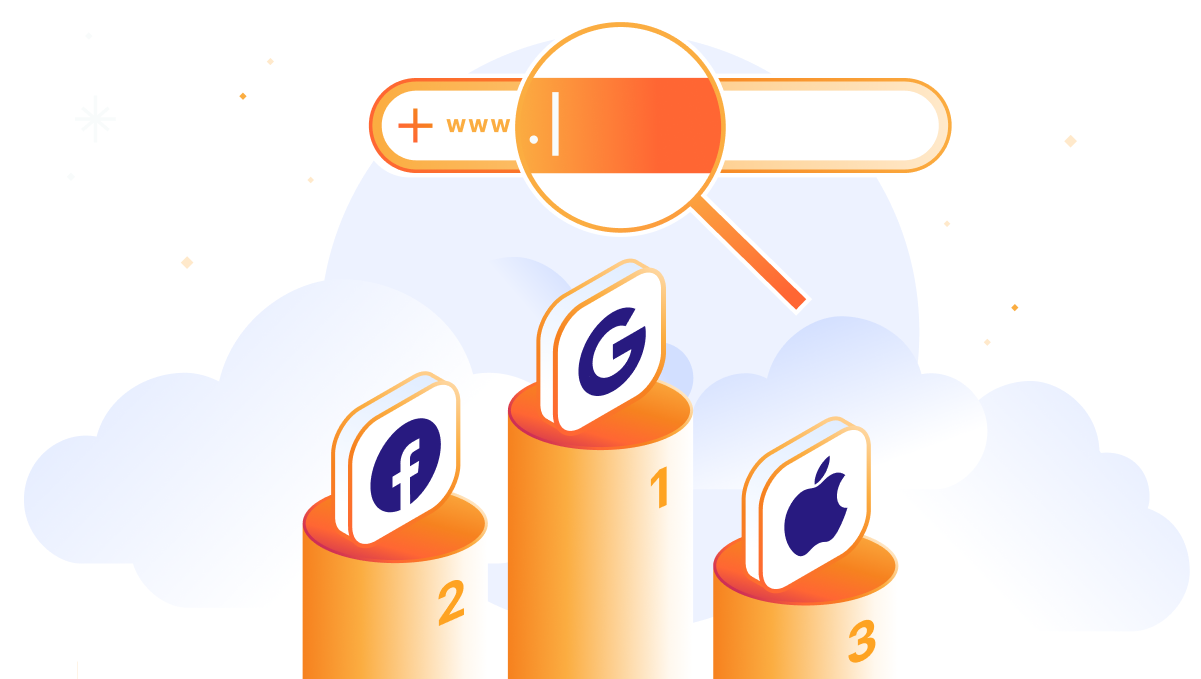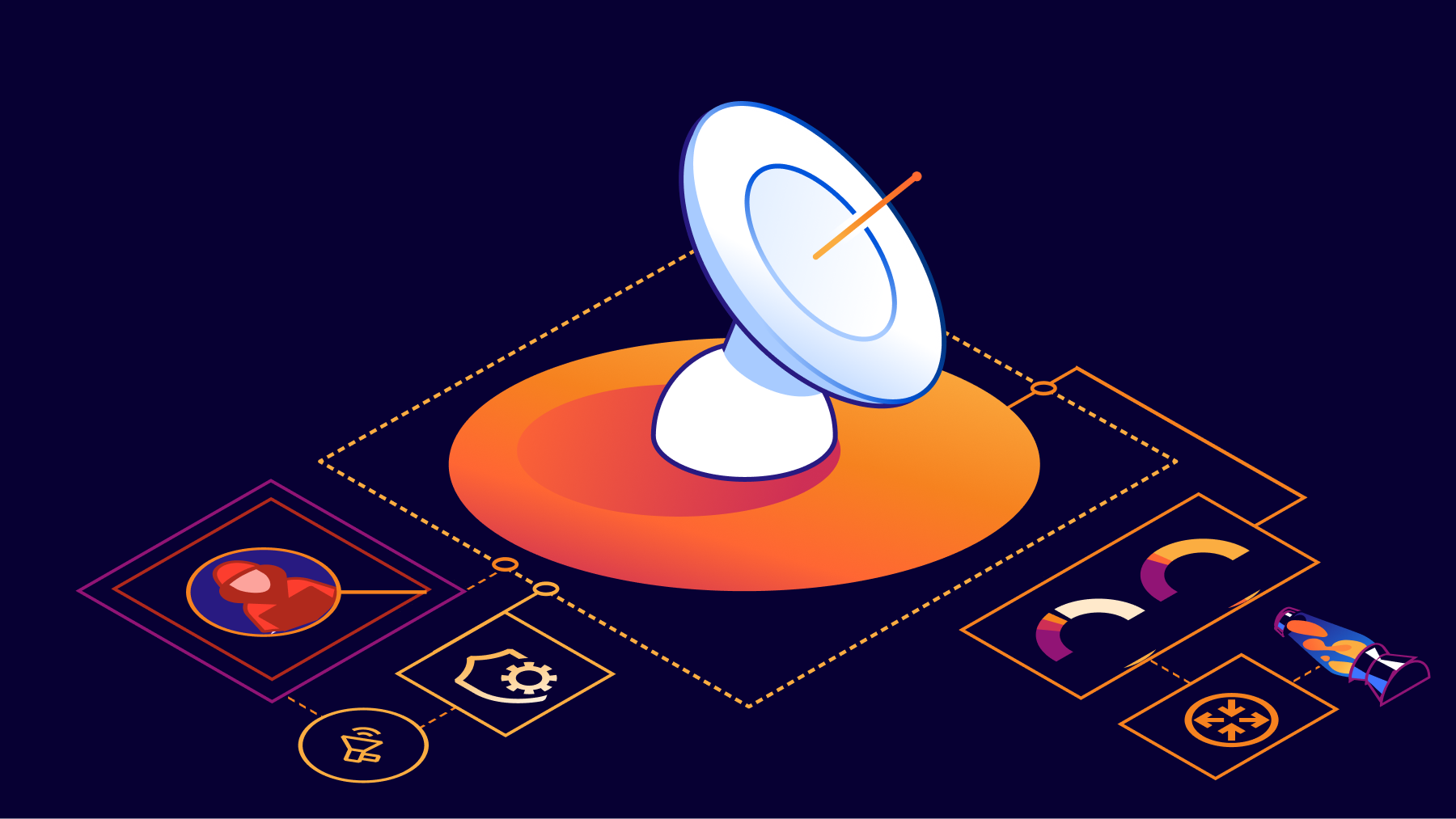Author Archives: João Tomé
Author Archives: João Tomé
The 2024 Summer Olympics, or Paris 2024, is set from July 26 to August 11 in France. The opening ceremony, scheduled for Friday, July 26 at 17:30, will take place for the first time not in a stadium but in the open space of the Jardins du Trocadéro by the Seine River in Paris. We’ll monitor relevant Internet insights throughout the event, but here we analyze some pre-event trends, from the popularity of Olympic websites by country to the increase in Olympics-related spam and malicious emails.
This year’s Olympics will host 329 events across 32 sports, featuring the debut of breakdancing as an Olympic event and the return of skateboarding, sport climbing, and surfing from 2020. Similar to our 2024 elections coverage, we will maintain a Paris 2024 Olympics report on Cloudflare Radar, updating it as significant Internet trends related to the event emerge.
From our 1.1.1.1 resolver, DNS trends show heightened interest in the Olympics, especially from France. 24% of DNS requests for official Olympic-related websites came from the host country, followed by the United Kingdom and the United States, with 20% and 17% respectively.
Here’s the breakdown of countries responsible for at Continue reading

The 2024 Summer Olympics, or Paris 2024, is set from July 26 to August 11 in France. The opening ceremony, scheduled for Friday, July 26 at 17:30, will take place for the first time not in a stadium but in the open space of the Jardins du Trocadéro by the Seine River in Paris. We’ll monitor relevant Internet insights throughout the event, but here we analyze some pre-event trends, from the popularity of Olympic websites by country to the increase in Olympics-related spam and malicious emails.
This year’s Olympics will host 329 events across 32 sports, featuring the debut of breakdancing as an Olympic event and the return of skateboarding, sport climbing, and surfing from 2020. Similar to our 2024 elections coverage, we will maintain a Paris 2024 Olympics report on Cloudflare Radar, updating it as significant Internet trends related to the event emerge.
From our 1.1.1.1 resolver, DNS trends show heightened interest in the Olympics, especially from France. 24% of DNS requests for official Olympic-related websites came from the host country, followed by the United Kingdom and the United States, with 20% and 17% respectively.

Here’s the breakdown of countries responsible for at Continue reading

Internet traffic typically mirrors human behavior, with significant fluctuations during large political events. This comes during a time when the United States is in election mode, as political campaigns are in full swing and candidates for various offices, primaries and caucuses make their case to voters and debates are being held. This week, the Republican National Convention was hosted in Milwaukee, Wisconsin from July 15 to 18, 2024. We examined traffic shifts and cyberattacks since June 2024 to see how these events have impacted the Internet.
Cyberattacks are a constant threat, and aren't necessarily driven by elections. With that said, notable trends can often be observed, and we’ve seen before how specific geopolitical events can trigger online attacks. For example, we saw cyberattacks at the start of the war in Ukraine to more recently in the Netherlands, when the June 2024 European elections coincided with cyberattacks on Dutch political-related websites that lasted two days — June 5th and 6th. The main DDoS (Distributed Denial of Service attack) attack on June 5, the day before the Dutch election, reached 73,000 requests per second (rps).
Shifting our focus to the United States in particular, Continue reading

National team sports unite countries, and football (known as “soccer” in the US) is the world’s most popular sport, boasting approximately 3.5 billion fans globally. The UEFA Euro 2024, running from June 14 to July 14, 2024, significantly impacts Internet traffic across participating European nations. This blog post focuses on the two finalists, Spain and England, and comes after an initial post we published during the first week of the tournament.
Analyzing traffic patterns reveals distinct high-level trends. Spain saw the most significant drops in Internet traffic during games against major teams and former champions such as Italy (the defending champion), Germany, and France. In contrast, England’s games had crucial moments towards the end, leading to the largest traffic reductions in the UK, especially during the knockout stages.
For context, as previously mentioned, football games like the Super Bowl, differ from other events such as elections. When major teams or national squads play, especially in matches that captivate many viewers, Internet traffic often drops. This is particularly true if the game is broadcast on a national TV channel. During such broadcasts, people tend to focus more on their TV sets, relying on the traditional broadcast signal Continue reading

The 2024 French legislative election runoff on July 7 yielded surprising results compared to the first round on June 30, with the New Popular Front (NPF) gaining the most seats, followed by French President Macron’s Ensemble party, and the National Rally. Coalition negotiations will follow. In this post, we examine the ongoing online attacks against French political parties and how initial election predictions at 20:00 local time led to a noticeable drop in France’s Internet traffic.
This blog post is part of a series tracking the numerous elections of 2024. We have covered elections in South Africa, India, Iceland, Mexico, the European Union, the UK and also the 2024 US presidential debate. We also continuously update our election report on Cloudflare Radar.
Let’s start with the attacks, and then move on to the Internet traffic trends.
As we highlighted last week, the first round of the French elections saw specific DDoS (Distributed Denial of Service) attacks targeting French political party websites. While online attacks are common and not always election-related, recent activities in France, the Netherlands, and the UK confirm that DDoS attacks frequently target political parties during election Continue reading

The 2024 UK general election, the first since Brexit officially began (January 31, 2020) and after 14 years of Conservative leadership, saw the Labour Party secure a majority. This blog post examines Internet traffic trends and cyberattack activity on election day, highlighting notable declines in traffic during the afternoon and evening as well as a DDoS attack on a political party shortly after polls closed.
For context, 2024 is considered “the year of elections,” with elections taking place in over 60 countries. We’ve covered elections in South Africa, India, Iceland, Mexico, the European Union, France, and also the 2024 US presidential debate. We also continuously update our election report on Cloudflare Radar.
The UK’s snap election on Thursday, July 4, 2024, typical of British Thursday weekday elections, contrasts with weekend elections in other countries. Polling stations were open from 07:00 to 22:00.
Generally, election days do not result in drastic changes to Internet traffic. Traffic typically dips during voting hours but not as sharply as during major events like national holidays, and rises in the evening as results are announced.
On July 4, 2024, traffic initially rose slightly from the previous week, then fell around noon Continue reading
This post is also available in Français.

France is currently electing a new government through early legislative elections that began on Sunday, June 30, 2024, with a second round scheduled for July 7. In this blog, we show how Cloudflare blocked DDoS attacks targeting three different French political parties.
2024 has been dubbed “the year of elections,” with elections taking place in over 60 countries, as we have mentioned before (1, 2, 3). If you regularly follow the Cloudflare blog, you’re aware that we consistently cover election-related trends, including in South Africa, India, Iceland, Mexico, the European Union and the 2024 US presidential debate. We also continuously update our election report on Cloudflare Radar.
Recently in France, as in the early stages of the war in Ukraine and during EU elections in the Netherlands, political events have precipitated cyberattacks. In France, several DDoS (Distributed Denial of Service attack) attacks targeted political parties involved in the elections over the past few days, with two parties hit just before the first round and another on election day itself.

The first political party, shown in yellow in the previous chart, experienced a DDoS attack on Continue reading

Key findings:
Internet traffic ebbs and flows usually follow human patterns, and high visibility events that are broadcast on TV usually have an impact. Let’s take a look at the first of the 2024 United States presidential debates between the two major presumptive candidates, Joe Biden and Donald Trump, for the November presidential election.
2024 has been dubbed “the year of elections,” with elections taking place in over 60 countries, as we have mentioned before (1, 2, 3). We are regularly updating our election report on Cloudflare Radar, including analysis of recent elections in South Africa, India, Iceland, Mexico, Continue reading

Football (“soccer” in the US) is considered the most popular sport in the world, with around 3.5 billion fans spread across the world. European football is central to its popularity. The UEFA Euro 2024 (the European Football Championship) started on June 14 and will run until July 14, 2024. But how much do these games impact Internet traffic in countries where national teams are playing? That’s what we aim to explore in this blog post. We found that, on average, traffic dropped 6% during games in European countries with national teams playing in the tournament.
Cloudflare has a global presence with data centers in over 320 cities, which helps provide a global view of what’s happening on the Internet. This is helpful for security, privacy, efficiency, and speed purposes, but also for observing Internet disruptions and traffic trends.
In the past, we’ve seen how Internet traffic and HTTP requests are impacted by events such as total solar eclipses, the Super Bowl, and elections. 2024 is the year of elections, and we’ve been sharing our observations in blog posts and our new 2024 Election Insights report on Cloudflare Radar.
However, football games are different from elections. Related trends Continue reading

The 2024 European Parliament election took place June 6-9, 2024, with hundreds of millions of Europeans from the 27 countries of the European Union electing 720 members of the European Parliament. This was the first election after Brexit and without the UK, and it had an impact on the Internet. In this post, we will review some of the Internet traffic trends observed during the election days, as well as providing insight into cyberattack activity.
Elections matter, and as we have mentioned before (1, 2), 2024 is considered “the year of elections”, with voters going to the polls in at least 60 countries, as well as the 27 EU member states. That’s why we’re publishing a regularly updated election report on Cloudflare Radar. We’ve already included our analysis of recent elections in South Africa, India, Iceland, and Mexico, and provided a policy view on the EU elections.
The European Parliament election coincided with several other national or local elections in European Union member states, leading to direct consequences. For example, in Belgium, the prime minister announced his resignation, resulting in a drop in Internet traffic during the speech followed by a clear increase after the speech was Continue reading

2024 is being called by the media “the” year of elections. More voters than ever are going to the polls in at least 60 countries for national elections, plus the 27 member states of the European Union. This includes eight of the world’s 10 most populous nations, impacting around half of the world’s population.
To track and analyze these significant global events, we’ve created the 2024 Election Insights report on Cloudflare Radar, which will be regularly updated as elections take place.
Our data shows that during elections, there is often a decrease in Internet traffic during polling hours, followed by an increase as results are announced. This trend has been observed before in countries like France and Brazil, and more recently in Mexico and India — where elections were held between April 19 and June 1 in seven phases. Some regions, like Comoros and Pakistan, have experienced government-directed Internet disruptions around election time.
Below, you’ll find a review of the trends we saw in elections in South Africa (May 29), to Mexico (June 2), India (April 19 - June 1) and Iceland (June 1). This includes election-related shifts in traffic, as well at attacks. For example, during the Continue reading

The 2024 European Parliament election started in the Netherlands today, June 6, 2024, and will continue through June 9 in the other 26 countries that are part of the European Union. Cloudflare observed DDoS attacks targeting multiple election or politically-related Internet properties on election day in the Netherlands, as well as the preceding day.
These elections are highly anticipated. It’s also the first European election without the UK after Brexit.
According to news reports, several websites of political parties in the Netherlands suffered cyberattacks on Thursday, with a pro-Russian hacker group called HackNeT claiming responsibility.
On June 5 and 6, 2024, Cloudflare systems automatically detected and mitigated DDoS attacks that targeted at least three politically-related Dutch websites. Significant attack activity targeted two of them, and is described below.
A DDoS attack, short for Distributed Denial of Service attack, is a type of cyber attack that aims to take down or disrupt Internet services such as websites or mobile apps and make them unavailable for users. DDoS attacks are usually done by flooding the victim's server with more traffic than it can handle. To learn more about DDoS attacks and other types of attacks, visit our Learning Center.
Attackers Continue reading
(UPDATED on April 15, 2024, with information regarding the Palestinian territories.)
As news came on Saturday, April 13, 2024, that Iran was launching a coordinated retaliatory attack on Israel, we took a closer look at the potential impact on Internet traffic and attacks. So far, we have seen some traffic shifts in both Israel and Iran, but we haven’t seen a coordinated large cyberattack on Israeli domains protected by Cloudflare.
First, let’s discuss general Internet traffic patterns. Following reports of attacks with drones, cruise missiles, and ballistic missiles, confirmed by Israeli and US authorities, Internet traffic in Israel surged after 02:00 local time on Saturday, April 13 (23:00 UTC on April 12), peaking at 75% higher than in the previous week around 02:30 (23:30 UTC) as people sought news updates. This traffic spike was predominantly driven by mobile device usage, accounting for 62% of all traffic from Israel at that time. Traffic remained higher than usual during Sunday.

Around that time, at 02:00 local time (23:00 UTC), the IDF (Israel Defense Forces) posted on X that sirens were sounding across Israel because of an imminent attack from Iran.
🚨Sirens sounding across Israel🚨 pic.twitter.com/BuDasagr10
— Israel Defense Forces Continue reading

There are events that unite people, like a total solar eclipse, reminding us, humans living on planet Earth, of our shared dependence on the sun. Excitement was obvious in Mexico, several US states, and Canada during the total solar eclipse that occurred on April 8, 2024. Dubbed the Great North American Eclipse, millions gathered outdoors to witness the Moon pass between Earth and the Sun, casting darkness over fortunate states. Amidst the typical gesture of putting the eclipse glasses on and taking them off, depending on if people were looking at the sky during the total eclipse, or before or after, what happened to Internet traffic?
Cloudflare’s data shows a clear impact on Internet traffic from Mexico to Canada, following the path of totality. The eclipse occurred between 15:42 UTC and 20:52 UTC, moving from south to north, as seen in this NASA image of the path and percentage of darkness of the eclipse.

Looking at the United States in aggregate terms, bytes delivered traffic dropped by 8%, and request traffic by 12% as compared to the previous week at 19:00 UTC Continue reading

Ask nearly any Internet user, and they are bound to have their own personal list of favorite sites, applications, and Internet services for news, messaging, video, AI chatbots, music, and more. Sum that question up across a lot of users in a lot of different countries, and you end up with a sense of the most popular websites and services in the world. In a nutshell, that’s what this blog post is about: how humans interacted with the online world in 2023 from what Cloudflare observed.
Building on similar reports we’ve done over the past two years, we have compiled a ranking of the top Internet properties of 2023. In addition to our overall ranking, we chose 9 categories to focus on. One of these is a new addition in 2023: Generative AI. Here are the 9 categories we’ll be digging into:
1. Generative AI
2. Social Media
3. E-commerce
4. Video Streaming
5. News
6. Messaging
7. Metaverse & Gaming
8. Financial Services
9. Cryptocurrency Services
Our method for calculating the results is the same as in 2022: we analyze anonymized DNS query data from our 1.1.1.1 public DNS resolver, used by millions of Continue reading

Throughout the year, special events lead to changes in Internet traffic. We observed this with Thanksgiving in the US last week, where traffic dipped, and during periods like Black Friday (November 24, 2023) and Cyber Monday (November 27, 2023), where traffic spiked.
But how significant are these Cyber Week days on the Internet? Is it a global phenomenon? Does e-commerce interest peak on Black Friday or Cyber Monday, and are attacks increasing during this time? These questions are important to retailers and stakeholders around the world. At Cloudflare, we manage substantial traffic for our customers, which gives us a unique vantage from which to analyze traffic and attack patterns across large swaths of the Internet.
As we'll explore next, we observed varying trends. From a global perspective, there was a clear Internet traffic winner: Cyber Monday was the highest overall traffic day of 2023 (as it was for 2022), followed by Black Friday, and then Monday, November 21 from the same week. But zooming in, this pattern didn’t hold in some countries.
For this analysis, we examined anonymized samples of HTTP requests crossing our network, as well as DNS queries. Cloudflare's global data shows that peak request traffic occurred on Continue reading

Thanksgiving is a tradition celebrated by millions of Americans across six time zones and 50 states, usually involving travel and bringing families together. This year, it was celebrated yesterday, on November 23, 2023. With the Internet so deeply enmeshed into our daily lives, anything that changes how so many people behave is going to also have an impact on online traffic. But how big an impact, exactly?
At a high level: a 10% daily decrease in Internet traffic in the US (compared to the previous week). That happens to be the exact same percentage decrease we observed in 2022. So, Thanksgiving in the US, at least in the realm of Internet traffic, seems consistent with last year.
Let’s dig into more details about how people deal with cooking (or online ordering!) and whether family gatherings are less online, according to our Cloudflare Radar data. We’ll also touch on whether hackers stop for turkey, too.
While we can see a 10% overall daily drop in US traffic due to Thanksgiving, the drop is even more noticeable when examining traffic on an hour-by-hour basis. Internet activity began to decrease significantly after 12:00 EST, persisting Continue reading


On Saturday, October 7, 2023, attacks from the Palestinian group Hamas launched from the Gaza Strip against the south of Israel started a new conflict in the region. Israel officially declared that it is at war the next day. Cloudflare's data shows that Internet traffic was impacted in different ways, both in Israel and Palestine, with two networks (autonomous systems) in the Gaza Strip going offline a few hours after the attacks. Subsequently, on October 9, two additional networks also experienced outages. We also saw an uptick in cyberattacks targeting Israel, including a 1.26 billion HTTP requests DDoS attack, and Palestine.
Starting with general Internet traffic trends, there was a clear increase in Internet traffic right after the attacks reportedly began (03:30 UTC, 06:30 local time). Traffic spiked at around 03:35 UTC (06:35 local time) in both Israel (~170% growth compared with the previous week) and Palestine (100% growth).
That growth is consistent with other situations, where we’ve seen surges in Internet traffic when countrywide events occur and people are going online to check for news, updates, and more information on what is happening, with social media and messaging also playing a role. However, in Palestine, that traffic growth Continue reading


A typo is one of those common mistakes with unpredictable results when it comes to the Internet’s domain names (DNS). In this blog post we’re going to analyze traffic for exmaple.com, and see how a very simple human error ends up creating unintentional traffic on the Internet.
Cloudflare has owned exmaple.com for a few years now, but don’t confuse it with example.com! example.com is a reserved domain name set by the Internet Assigned Numbers Authority (IANA), under the direction of the Internet Engineering Task Force (IETF). It has been used since 1999 as a placeholder, or example, in documentation, tutorials, sample network configurations, or to prevent accidental references to real websites. We use it extensively on this blog.
As I’m writing it, the autocorrect system transforms exmaple.com into example.com, every time, assuming I must have misspelled it. But in situations where there’s no automatic spelling correction (for example, while editing a configuration file) it’s easy for example to become exmaple.
And so, lots of traffic goes to exmaple.com by mistake — whether it was a typoed attempt to reach example.com or due to other random reasons. Fake email accounts in Continue reading


Cloudflare Radar was launched in September 2020, almost three years ago, when the pandemic was affecting Internet traffic usage. It is a free tool to show Internet usage patterns from both human and automated systems, as well as attack trends, top domains, and adoption and usage of browsers and protocols. As Cloudflare has been publishing data-driven insights related to the general Internet for more than 10 years now, Cloudflare Radar is a natural evolution.
This year, we have introduced several new features to Radar, also available through our public API, that enables deeper data exploration. We’ve also launched an Internet Quality section, a Trending Domains section, a URL Scanner tool, and a Routing section to track network interconnection, routing security, and observed routing anomalies.
In this reading list, we want to highlight some of those new additions, as well as some of the Internet disruptions and trends we’ve observed and published posts about during this year, including the war in Ukraine, the impact of Easter, and exam-related shutdowns in Iraq and Algeria.
We also encourage everyone to explore Cloudflare Radar and its new features, and to give you a partial review of the year, in terms of Internet Continue reading